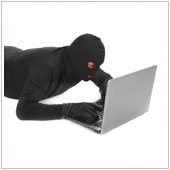 The security of a business computers and networks is likely top of mind for many business owners. There are constant threats that you need to be aware of, with one of the more prevalent being malware. It seems like nearly every week there is some new security threat that could potentially infect your systems. The latest is a particularly nasty piece of ransomware – CryptoLocker.
The security of a business computers and networks is likely top of mind for many business owners. There are constant threats that you need to be aware of, with one of the more prevalent being malware. It seems like nearly every week there is some new security threat that could potentially infect your systems. The latest is a particularly nasty piece of ransomware – CryptoLocker.
Knowledge is power so finding out more about CryptoLocker is recommended, as well as how you can take steps to protect your systems.
What is CryptoLocker?
Ransomware is a virus that locks important files or systems and requests that users pay a ransom to unlock them. This is not a new form of malware, but there has been a recent resurgence and CryptoLocker is leading the way.
This particularly nasty piece of malware infects user systems and locks files, threatening to delete them unless the hacker is paid. It is being spread four different ways:
CryptoLocker installs itself to the Documents and Settings folder on your system and then proceeds to search for specific file types like Microsoft Word Docs or Adobe PDFs. It applies an asymmetric encryption which requires both a public and private key to unlock. The public key is stored in the virus itself and is used to encrypt the files. The private key is hosted on the hacker’s server.
What happens if I get infected?
If your system is infected your files will be encrypted and a pop-up message displayed informing you that your personal files have been encrypted and that in order to get the key to unlock them (the private key) you need to pay up to USD$300, or a similar amount in another currency. This amount seems to change and has increased, with older versions asking for USD$100.
You will also see a timer counting down from 100 hours. If this reaches zero, your encrypted data will be deleted with a very slim chance of the files being recoverable. The preferred method of payment is in BitCoins – a digital currency. The pop-up window has instructions on how to submit the payment – usually through an online payment method like Green Dot – MoneyPak.
The good news is, once you submit the payment, you will receive a key you can enter to unlock your files. The hackers have said that they won’t re-infect systems, and network security companies have confirmed that so far, this has been the case.
While many up-to-date virus and security scanners will pick up CryptoLocker, most won’t be able to recover or decrypt files even if the malware itself is deleted. If you see the pop-up window, it’s probably too late.
How do I prevent CryptoLocker from infecting my systems?
This is a serious piece of malware that should not be taken lightly. If you are worried about your systems being infected, here are five things you can do to prevent that from happening:
Looking to learn more about CryptoLocker and how you can keep your systems safe from it? Contact us today.